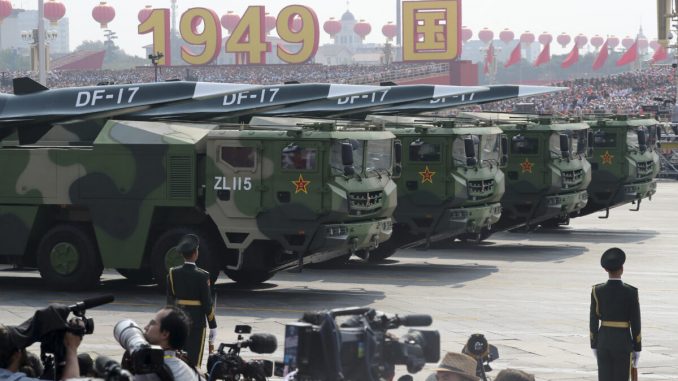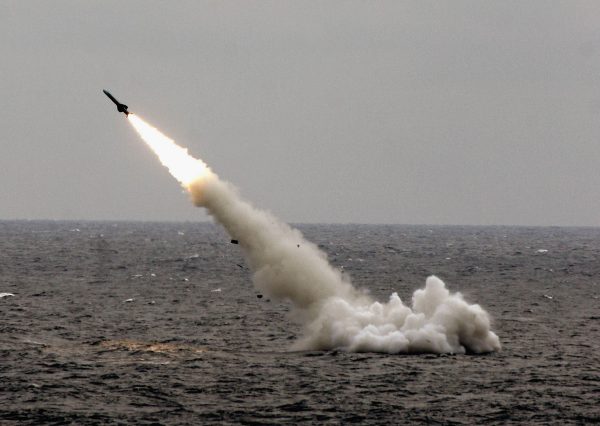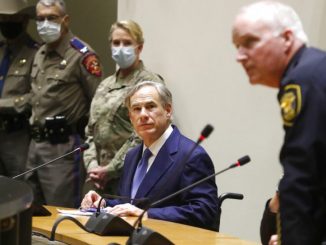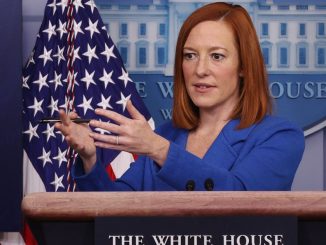
Commentary
The U.S. disarmament ambassador said on May 18 that China is resisting nuclear arms reduction talks with the United States. Such resistance is a violation of China’s obligations under the Treaty on the Nonproliferation of Nuclear Weapons (NPT).
Article VI of the treaty states that “Each of the Parties to the Treaty undertakes to pursue negotiations in good faith on effective measures relating to cessation of the nuclear arms race at an early date and to nuclear disarmament, and on a treaty on general and complete disarmament under strict and effective international control.”
When the United States, Soviet Union, and Britain signed the NPT in 1968, China claimed the treaty was discriminatory and refused to become a signatory. It finally did accede to the treaty on March 9, 1992. But it didn’t lean forward. At the 2014 Vienna conference on the Humanitarian Impact of Nuclear Weapons, the United States and Britain attended in an official capacity, but China only sent an observer.
Ambassador Robert Wood told the virtual U.N. conference in Geneva yesterday that “Despite the PRC’s dramatic build-up of its nuclear arsenal, unfortunately it continues to resist discussing nuclear risk reduction bilaterally with the United States.” He said, “To date Beijing has not been willing to engage meaningfully or establish expert discussions similar to those we have with Russia. We sincerely hope that will change.” As they say, hope isn’t a strategy.
China’s envoy Ji Zhaoyu rebuffed Ambassador Wood by claiming to be ready to engage. “We stand ready to carry out positive dialogue and exchange with all parties to jointly explore effective measures to reduce nuclear risk and to contribute to global strategic security,” he said.

Ambassador Ji was lying.
China claims that its modernizing missile force is for self-defense, but its threats of war against the United States, the Philippines, and Taiwan since 2017 reveal this as another lie.
President Biden is trying to push a string with China, as in February he agreed with Russia to extend, for five years, the New START arms control treaty. It limits deployments of U.S. and Russian nuclear weapons while allowing China to continue its program of intensive nuclear weapons modernization and expansion. Biden should have forced China into the New Start before unilaterally giving up his bargaining chips. Now Beijing has no incentive to limit its own nuclear weapons. It holds all the cards, and keeps pulling more from its sleeves.
China has argued that the United States and Russia are “the largest nuclear powers in the world” and so China has a ways to catch up before it should be subject to nuclear arms control. “China hopes to work on a basis of parity [my emphasis] and mutual respect with all nuclear powers, including the Russian Federation and the United States, to engage in bilateral dialogue on security, strengthening mutual security measures, boosting transparency and trust,” China’s Ambassador Li Song said in February upon the extension of New START.
Ambassador Li must have had a good chuckle with General Secretary Xi Jinping that night. Biden was a sucker who signed an arms control agreement with an impoverished Russia that can’t really afford to modernize its nuclear arsenal anyway.
Former President Trump took a more strategic approach to New START, pushing China to join and implying that if Beijing declined to do so, the United States would withdraw. This was the correct approach as it incented Beijing to decrease its nuclear arms and become a responsible international citizen.
Democracies should not allow themselves to devolve to the level of nuclear “parity” with dictatorships that commit genocide. Such parity in the nuclear arena will only allow China to use its nuclear weapons and increasingly superior conventional forces and economy, to back the United States into weaker and weaker positions. China’s authoritarian structure makes it easier for the country to utilize nuclear brinkmanship against the United States. China will surely increase such brinkmanship when it achieves greater relative military strength in the next five-to-thirty years.
China claims that the United States seeks absolute military superiority, which is another lie, as demonstrated by America’s frequent military withdrawals (such as Vietnam in 1975, the Philippines in 1992, Afghanistan pretty soon, and threats to withdraw from Europe), and too-friendly approach to authoritarian regimes like China. America failed to decisively defeat China when it was possible in the 1950s, and now the authoritarian country is coming back with a vengeance to destroy democracy.
China has no democracy, which is the basis for sovereign legitimacy. Only legitimate democratic states should have nuclear weapons. When the world is safe from authoritarians and thus from war, we too should give them up.
Anders Corr has a BA/MA in political science from Yale University (2001) and a Ph.D. in government from Harvard University (2008). He is a Principal at Corr Analytics Inc., Publisher of the Journal of Political Risk, and has conducted extensive research in North America, Europe, and Asia. He authored “The Concentration of Power” (forthcoming 2021) and “No Trespassing,” and edited “Great Powers, Grand Strategies.”






Be the first to comment